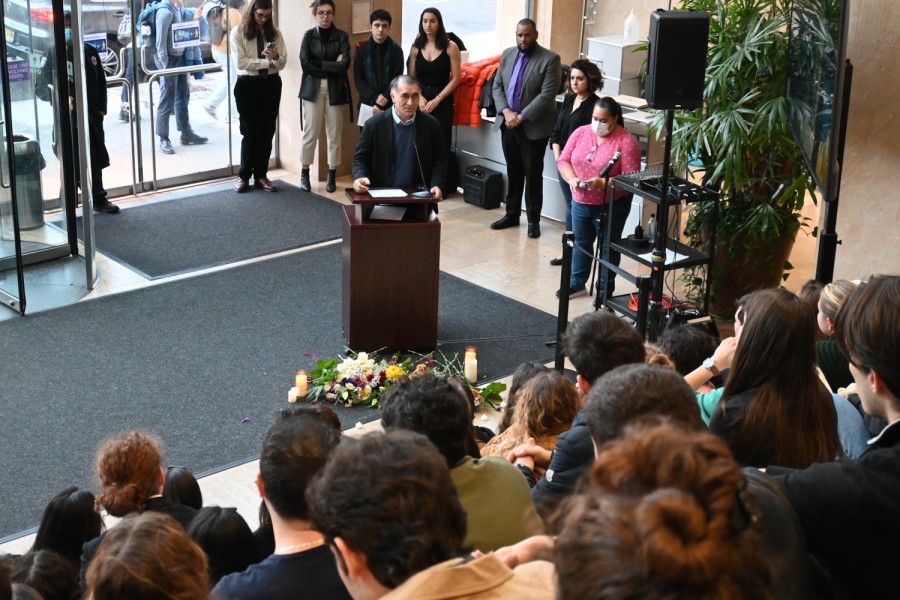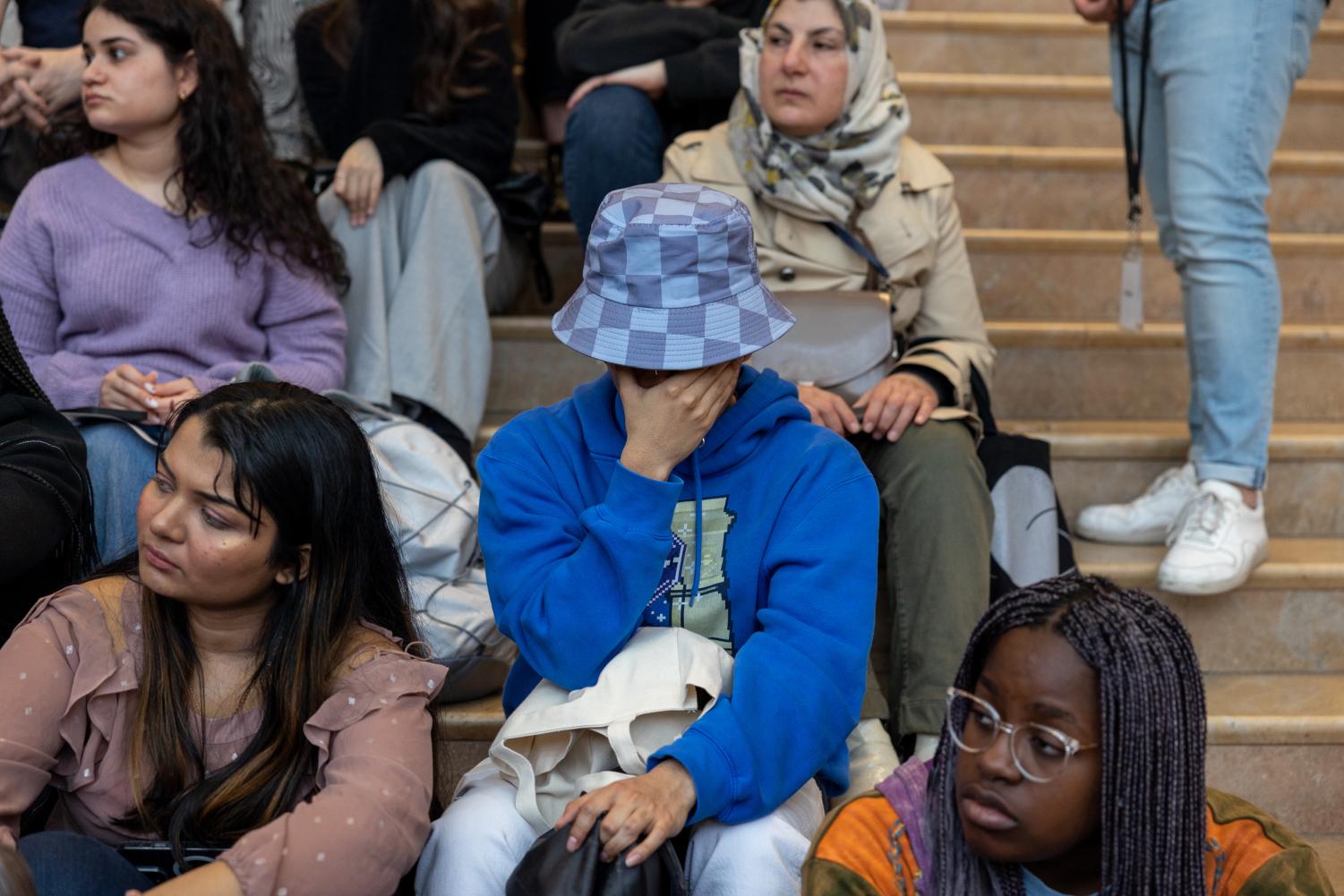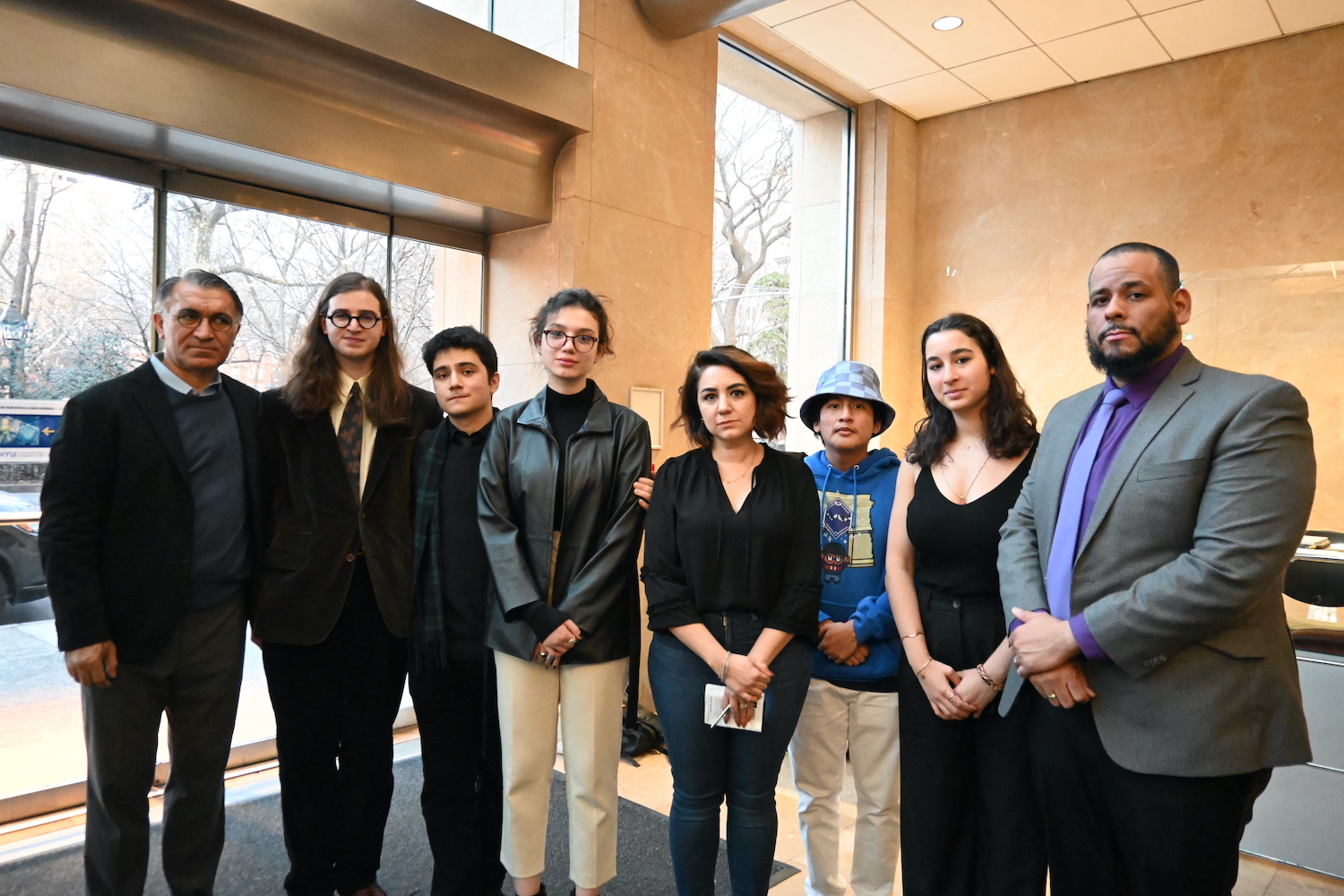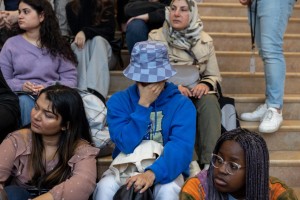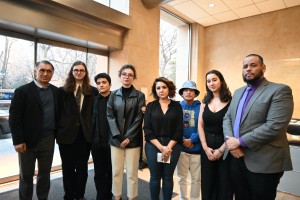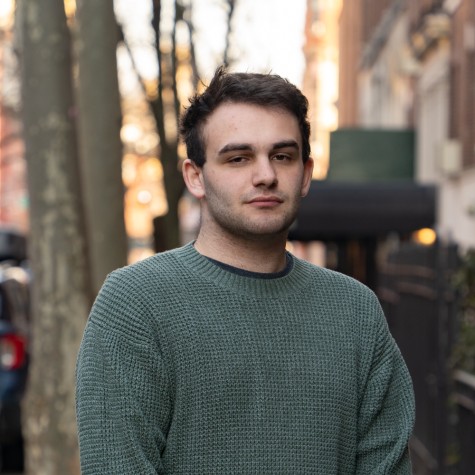NYU vigil honors victims of Turkey and Syria earthquakes
After two deadly earthquakes hit Turkey and Syria last week, NYU’s student government and its Turkish Student Association organized a vigil in solidarity with victims.
Dozens of people gathered at the Kimmel Center for University Life for a vigil organized by NYU’s Turkish Student Association, in memory of those who passed and those still affected by the recent earthquake in Turkey and Syria. (Zeynep Zaimler for WSN)
February 16, 2023
Dozens of NYU students and faculty gathered on the steps of the Kimmel Center for University Life on Feb. 15 to honor the tens of thousands of lives lost in recent earthquakes, which devastated Turkey and Syria. Attendees listened to speeches from professors and members of the Turkish Student Association about how government corruption and political instability worsened the disaster, and observed a moment of silence for those who were killed.
The Feb. 6 earthquakes have taken the lives of nearly 38,000 people in Turkey and Syria combined, and rescue efforts are ongoing. Many have blamed a lack of construction law enforcement in Turkey and the instability caused by war in Syria for the high death toll.
The earthquakes occurred in northern Syria and southeastern Turkey with magnitudes of 7.5 and 7.8, respectively. Government officials have called the disaster the most catastrophic in the regions in the last century.
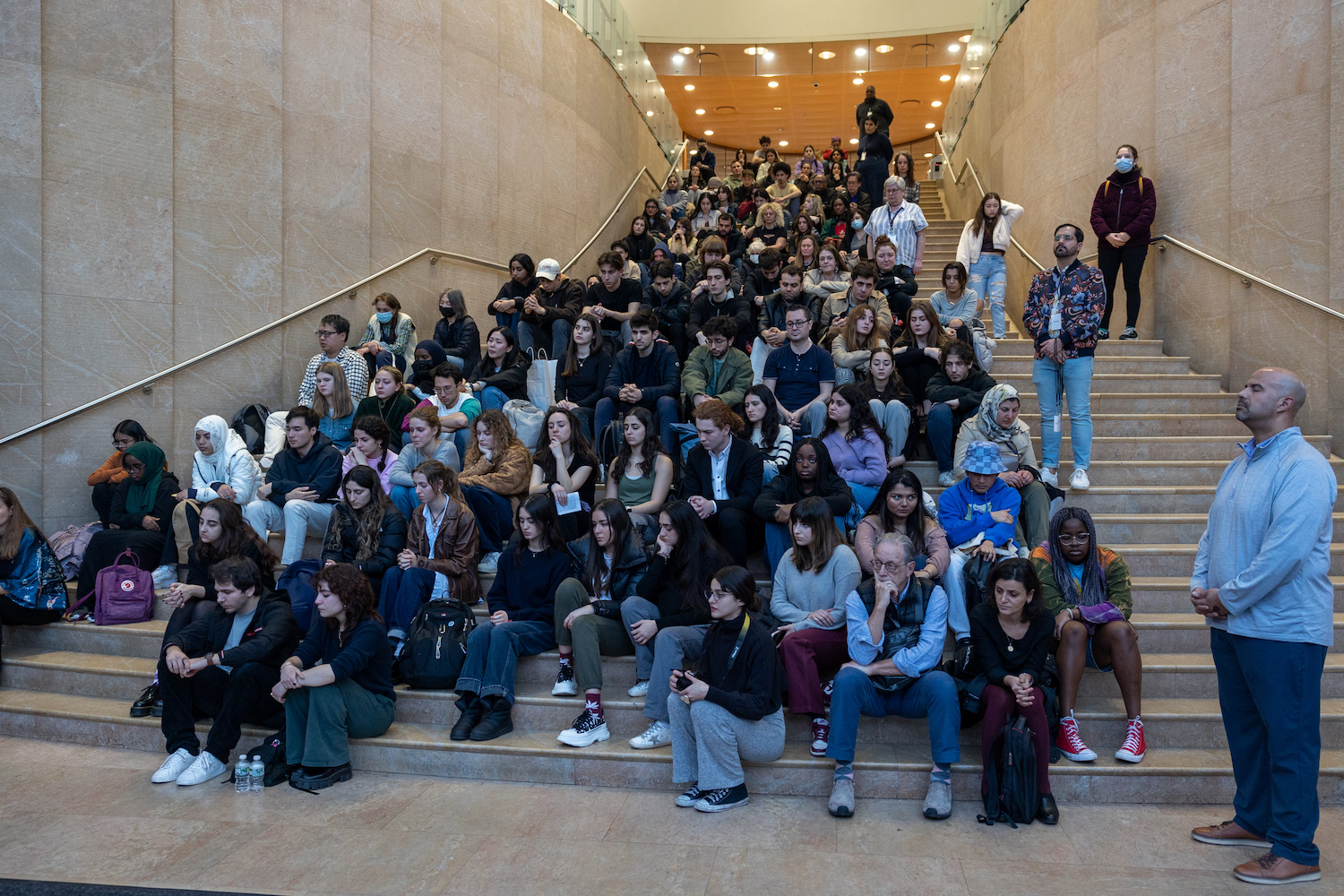
Speakers at the NYU vigil also pointed to government neglect as a catalyst of the disaster, and demanded justice for the victims. Selçuk Şirin, an associate professor at the Steinhardt School of Culture, Education, and Human Development, shared how the disaster has personally affected him.
“I don’t usually cry, and I find myself crying throughout the day,” Şirin said. “Just because we are here, away from home, doesn’t mean that our pain is not real. It is real pain, but I also want to talk about an opportunity that we have — we can convert this pain into action.”
The vigil was organized by the student government and the Turkish Student Association. The Turkish Student Association has also been working to aid those affected by the earthquake by collecting donations in the lobby of Bobst Library.
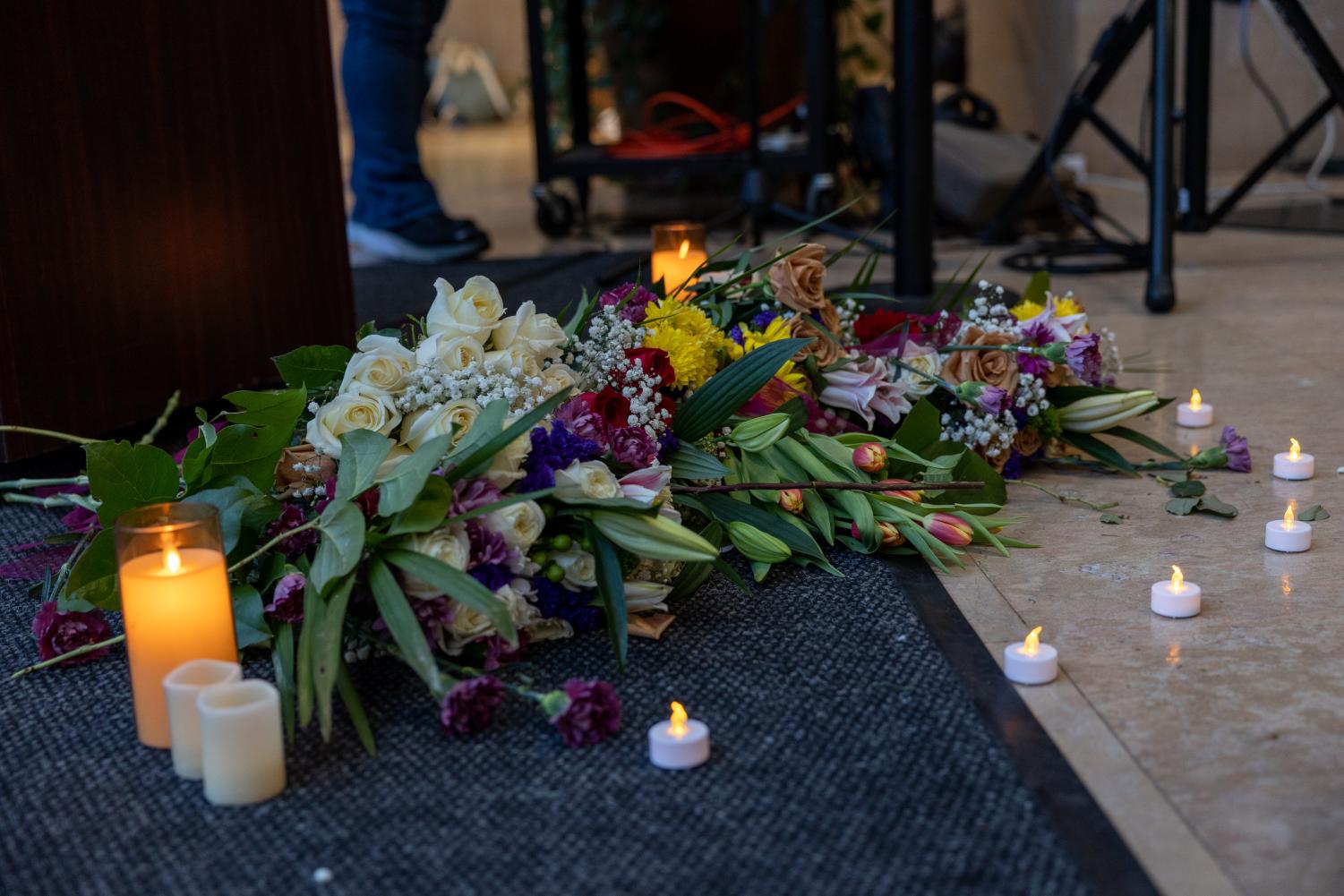
Andrew Hamilton, NYU’s president, called on the university community to support aid and rescue efforts in any way possible in a news statement on Feb. 9.
“The devastation is staggering,” Hamilton said in the statement. “The loss of life, the damage to buildings of all kinds, the desperation of those made homeless, the countless challenges confronting the rescuers, the brutal weather — the tragedy of it is so heartbreaking and the needs so immense that it borders on the overwhelming.”
Yavuz Kaklıkkaya, a student, said he thinks many people in the NYU community do not share his concern for the victims of the earthquakes. He added that though he thinks the university has been helpful in spreading awareness about the disaster, it has also been slow to do so.
“I’m aware that so much is left unsaid,” Kaklıkkaya said. “I wish there was time for prayers. I wish I had the political freedom to say more.”
NYU junior Lamisa Khan urged students and faculty to stand in solidarity with the people affected by the disaster.
“Sometimes it feels like we have these vigils and then the energy dies down, and people forget — they don’t continue the action, or continue supporting these causes or helping out,” Khan said. “It’s like we see the vigils, we show up, and then we just stop. I don’t know if people are going to keep on pushing and advocating.”
Contact Aya Diab at [email protected].


























































































































































